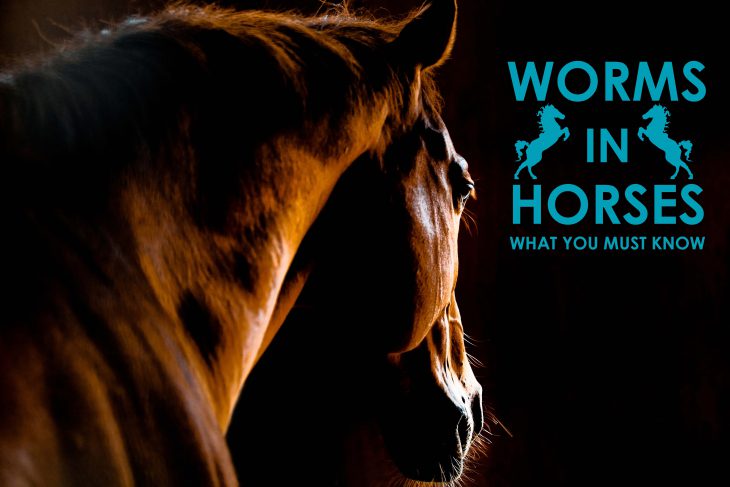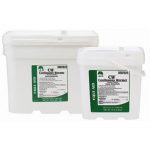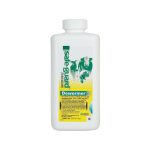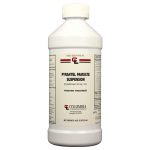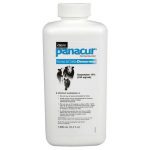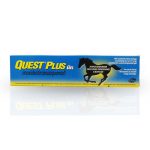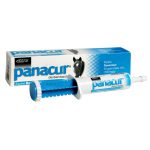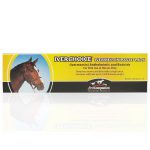Worms, or internal parasites, can and will adversely affect your horse’s health. If left untreated, a horse with worms can develop serious, untreatable damage to its internal organs which will eventually lead to death.
The most common internal parasites are roundworms, small strongyles, tapeworms, bots, pinworms, large strongyles, and threadworms. The worms that pose the biggest threat to a horse’s health are roundworms, small strongyles, and tapeworms.
How do worms enter a horse’s body?
Typically, the horse ingests the parasite’s eggs or larvae while grazing. Once inside the horse’s digestive system, the eggs or larvae mature into adulthood.
What are the symptoms of worms in horses?
A dull coat, poor performance, weakness, and depression are the most common symptoms your horse is suffering from internal parasites. Internal parasites in horses can lead to death.
How can worms in horses be treated?
According to the American Association of Equine Practitioners (AAEP), “In terms of management priorities establishing an effective parasite control program is probably second only to supplying the horse with clean, plentiful water and high-quality feed.”* Therefore, administering deworming medication is one of the best defenses against internal parasites in horses. This can easily be accomplished by a developing a deworming schedule.
How do you develop a deworming schedule?
An effective deworming schedule should take into account the horse’s size and age as well as the season, climate and stable location. Horse dewormers should be used either daily or seasonally throughout the year. Horse dewormers are available in pellets, liquid suspensions, or pastes.
Daily Horse Dewormers: the daily use of dewormers prevents harmful parasites infestations. Daily dewormers paralyze parasites in the digestive tract, and move them harmlessly out of the horse’s system.
Seasonal Horse Dewormers: administering a systematic, seasonal deworming program can control these harmful parasites. It is recommended that you should deworm horses six times a year, rotating different compounds (such as ivermectin, fenbendazole, and pyrantel pamoate) based on seasonal parasite prevalence.
Equi Aid CW Pellet Horse Wormer is a concentrated de-wormer for your horse that can be added to their daily ration for effective continuous support. Safe for all horses, ten pounds provides 80 days of prevention for a 1000 lb. horse.
Safe-Guard Suspension is for the removal and control of large and small strongyles, pinworms, and roundworms.
Pyrantel Pamoate is a dewormer for the removal and control of mature infections of strongyles, pinworms and roundworms in horses.
Panacur Suspension 10%, 1 Liter is a horse dewormer for the control of large strongyles, small strongyles and pinworms.
QUEST PLUS Equine Oral Gel contains two active pharmaceutical ingredients, moxidectin and praziquantel. Moxidectin acts by interfering with chloride channel-mediated neurotransmission in the parasite.
Panacur Paste 10% provides effective control of large and small strongyles, pinworms, and roundworms. Panacur® (fenbendazole) Paste 10% contains the active ingredient fenbendazole an anthelmintic.
IVERMECTIN PASTE 1.87% controls bots, large strongyles, small bloodworms, roundworms (ascarids), threadworms, pinworms, hairworms, lungworms, and large-mouth stomach worms.
In conclusion, horses are easily prone to getting internal parasites, also known as worms. Once inside a horse’s body, internal parasites can cause severe damage to a horses’s internal organs which could lead to death if left untreated. Symptoms a horse may have internal worms are a dull coat, poor performance, weakness, and depression. Implementing a daily and seasonal deworming schedule is the most effective way to combat internal parasites from harming your horse.
*Source: American Association of Equine Practitioners. Horse Health. https://www.aaep.org/info/horse-health?publication=876 Accessed on 1/3/17.
Has your horse been diagnosed with worms? If yes, let us know how you were able to treat it.

